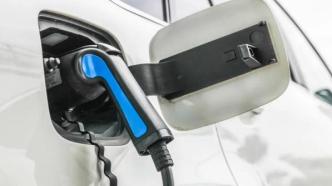
Charging an EV typically takes 10 hours or more, and even with fast charging, it takes at least 30 minutes. A breakthrough technology recently developed by Pohang University of Science and Technology in South Korea can increase storage capacity to about 1.5 times the theoretical limit, allowing electric vehicles to be fully charged in just 6 minutes. The research results were published as a cover paper in the new issue of "Advanced Functional Materials".
The efficiency of lithium-ion batteries used in electric vehicles depends on the ability of the anode material to store lithium ions. Using a new self-hybridization method this time, the research team designed a new method to synthesize manganese ferrite as an anode material, which is known for its excellent lithium ion storage capacity and ferromagnetic properties.
The researchers first realized the electrodisplacement reaction in a mixed solution of manganese oxide and iron to form a heterostructure compound with manganese oxide inside and iron oxide outside, and then used a hydrothermal method to fabricate nano-thick manganese ferrite with enlarged surface area piece. This approach, which exploits highly spin-polarized electrons, significantly increased the storage capacity of large amounts of lithium ions, an innovation that ultimately exceeded the theoretical capacity of manganese ferrite cathode materials by more than 50%.
Increasing the surface area of the negative electrode material is conducive to the simultaneous movement of a large number of lithium ions, thereby increasing the charging speed of the battery. Experimental results show that the new method only takes 6 minutes to charge and discharge compared with batteries of comparable capacity used in electric vehicles currently on the market.
The research results provide new insights into how to overcome the electrochemical limitations of conventional anode materials and increase battery capacity through the rational design of surface modification utilizing electron spin.
(Original title "New technology for fully charging in 6 minutes breaks through the theoretical limit of battery capacity")
